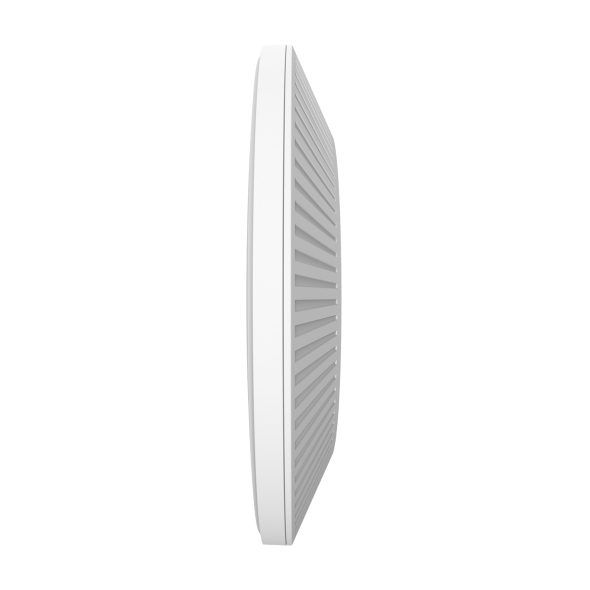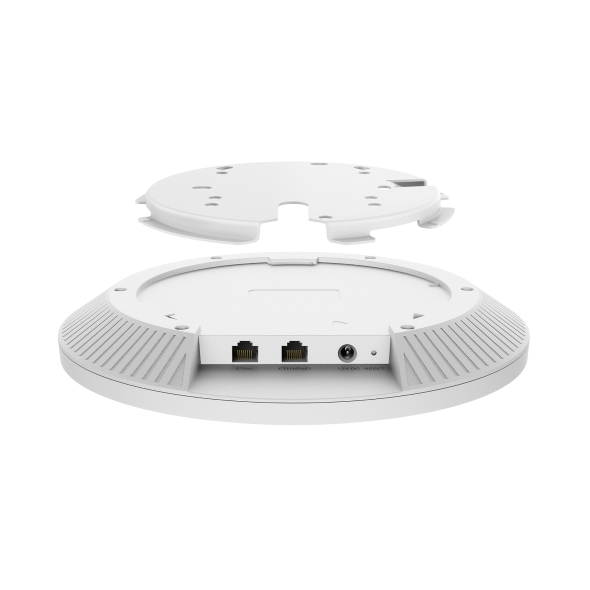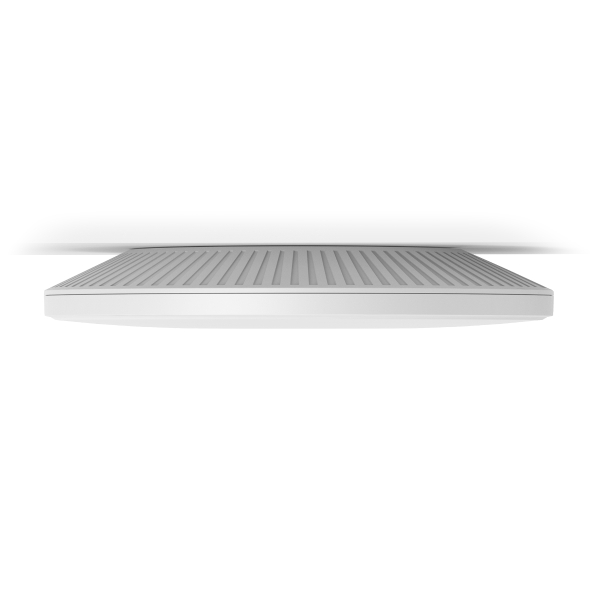EAP783
BE22000 Ceiling Mount Tri-Band Wi-Fi 7 Access Point
- BE22000 Tri-Band Wi-Fi 7 (11520 Mbps on 6 GHz + 8640 Mbps on 5 GHz + 1148 Mbps on 2.4 GHz). †
- A clear 6 GHz band brings cleaner and wider band resources.‡
- 2× 10G ports unlock the full potential of Wi-Fi 7.
- 320 MHz bandwidth enables many more simultaneous transmissions.‡
- Multi-Link Operation and Multi-RUs ensure the high performance of your network.‡
- Advanced Functions: Centralized management, mesh, and AI roaming.△
Learn more about the Omada Cloud SDN>
Wi-Fi 7: Swifter, Smoother, Stronger‡
WiFi 7 Supersized Throughput
10 bits/symbol
12 bits/symbol
802.11ax
802.11be
4096-QAM for Higher Capacity
Line1
Line2
Multi-Link
MLO for Lower Latency
Seamless Integration into the Omada SDN
Remotely manage your access points, switches, and routers across multiple sites — all from a single interface.
-
Cloud Access
WiFi7 Ceiling Mount
Access Point
EAP783Wall
Plate APOutdoor
APOmada PoE
SwitchOmada VPN
RouterWeb
BrowserOmada
AppOmada Hardware
ControllerOr
Or
Omada Software
ControllerOn-premises Controllers
Omada Cloud-Based Controller
Boosted Network Security
-
Secure Guest Network with up to 24 SSIDs
-
Boost Your Business with SMS Login△
-
WPA3 for Worry-Free Open Public Networks
-
Rogue AP Detection
†Maximum wireless signal rates are the physical rates derived from IEEE Standard 802.11 specifications. The 320 MHz bandwidth is only available on the 6 GHz band. Simultaneously, the 320 MHz bandwidth on the 6 GHz band and 160 MHz bandwidth on the 5 GHz band may be unavailable in some regions/countries due to regulatory restrictions. Double channel width and speed refer to 320 MHz compared to 160 MHz for WiFi 6 routers. Actual wireless data throughput, wireless coverage, and connected devices are not guaranteed and will vary as a result of internet service provider factors, network conditions, client limitations, and environmental factors, including building materials, obstacles, volume and density of traffic, and client location.
‡Use of Wi-Fi 7 (802.11be), Wi-Fi 6 (802.11ax), and features including Multi-Link Operation (MLO), 320 MHz Bandwidth, 6 GHz, 4K-QAM, Multi-RUs, OFDMA, MU-MIMO, and BSS Color require clients to also support the corresponding features.
*Zero-Touch Provisioning, Auto Channel Selection and Power Adjustment require the use of the Omada Cloud-Based Controller. Go to https://www.tp-link.com/en/omada-cloud-based-controller/product-list/ to confirm which models are compatible with the Omada Cloud-Based Controller.
**The actual capacity depends on the wireless environment and client traffic and is generally less than the maximum number of client connections.
§Coverage value is calculated based on laboratory testing. Actual coverage is not guaranteed and will vary as a result of client limitations and environmental factors.
△Omada Mesh, AI Roaming, Captive Portal, and Cloud Access require the use of an Omada SDN controller. Please refer to the User Guides of Omada SDN controllers for configuration methods.






























